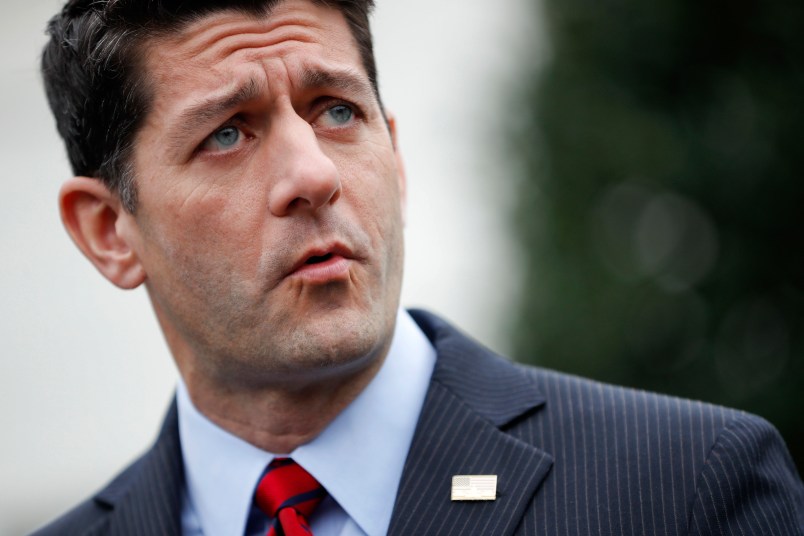Amid the chaos on Capitol Hill Thursday as GOP leaders failed to muster the votes for their bill to repeal the Affordable Care Act, the Congressional Budget Office released its assessment of the most recent revision of the bill. The CBO had little good news for Republicans: 24 million people would still lose insurance over 10 years under the revised legislation, and it would do far less than the original bill to reduce the federal deficit.
The original bill was slated to reduce the deficit by $337 billion over a decade, but amendments proposed to win over the votes of moderate Republicans nervous about the bill’s impact on their lower-income and elderly constituents would cost the government an additional $186 billion.
The changes also do nothing to improve health insurance premium costs. The CBO found that premiums would go up on average 15-20 percent over the next two years, though over 10 years they would go down slightly compared to the estimate under Obamacare.
The CBO had been asked to evaluate the changes to the bill made in a proposed manager’s amendment, which speeds up the repeal of several taxes, boosts Medicaid funding for the disabled, the blind, and the elderly, and sets aside about $85 billion to increase tax credits for people age 50-64—who would be some of the people most hurt by the original bill.
The office found today that those changes would cost nearly $200 billion more than the original bill while doing nothing to bring down the number of uninsured Americans.
The bill the CBO scored is also not the final version the House will vote on as early as tomorrow. Significant changes may be in the works, including a move to kill Obamacare’s Essential Health Benefits rule, which could further destroy the bill’s impact on the federal deficit.
The EHB rule, which the House GOP repeal bill originally retained, requires that insurance plans have to cover a basic minimum of health care services, including emergency room visits, hospitalization, outpatient services, maternity care, mental health and substance abuse services, prescription drugs, rehabilitative and habilitative services, lab tests, preventive care like vaccines, and vision and dental care for children.
Read the report here:
-
|November 1, 2021 2:56 p.m.
Sen. Joe Manchin (D-WV) reminded everyone that his vote remains crucial for passing the reconciliation bill during a hastily arranged…
-
|October 25, 2021 2:16 p.m.
Democrats are poised to orient the country’s tax system in a whole new direction.
-
|July 14, 2021 5:11 p.m.
The Senate’s reconciliation bill is quickly moving from being an infrastructure package to an across-the-board attempt at revitalizing the American…
-
|June 25, 2021 11:37 a.m.
When someone is laying an obvious trap, there’s always an option to avoid it.










